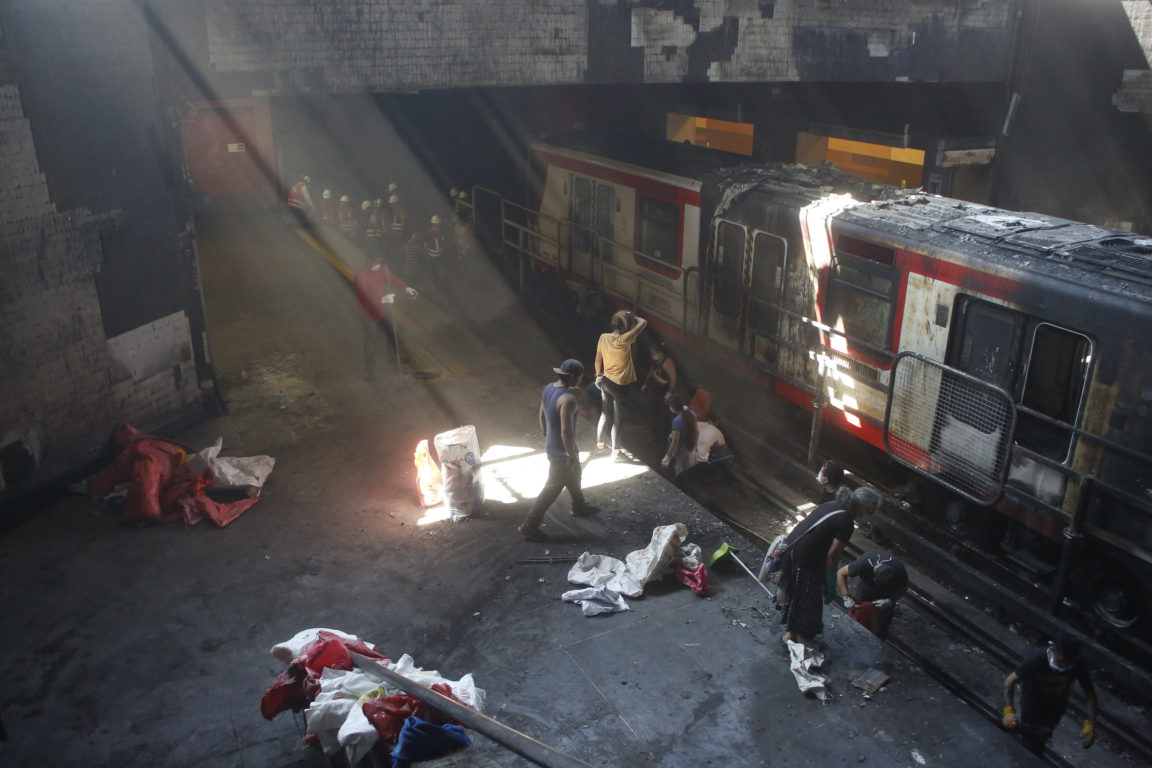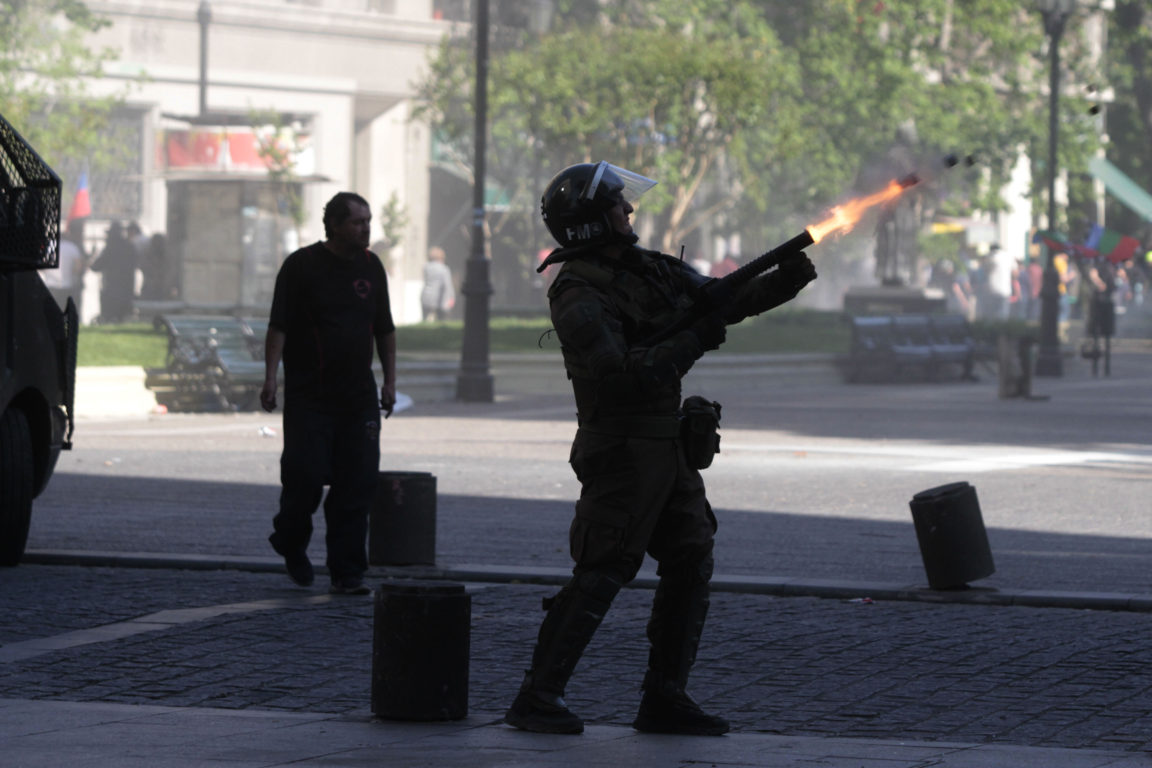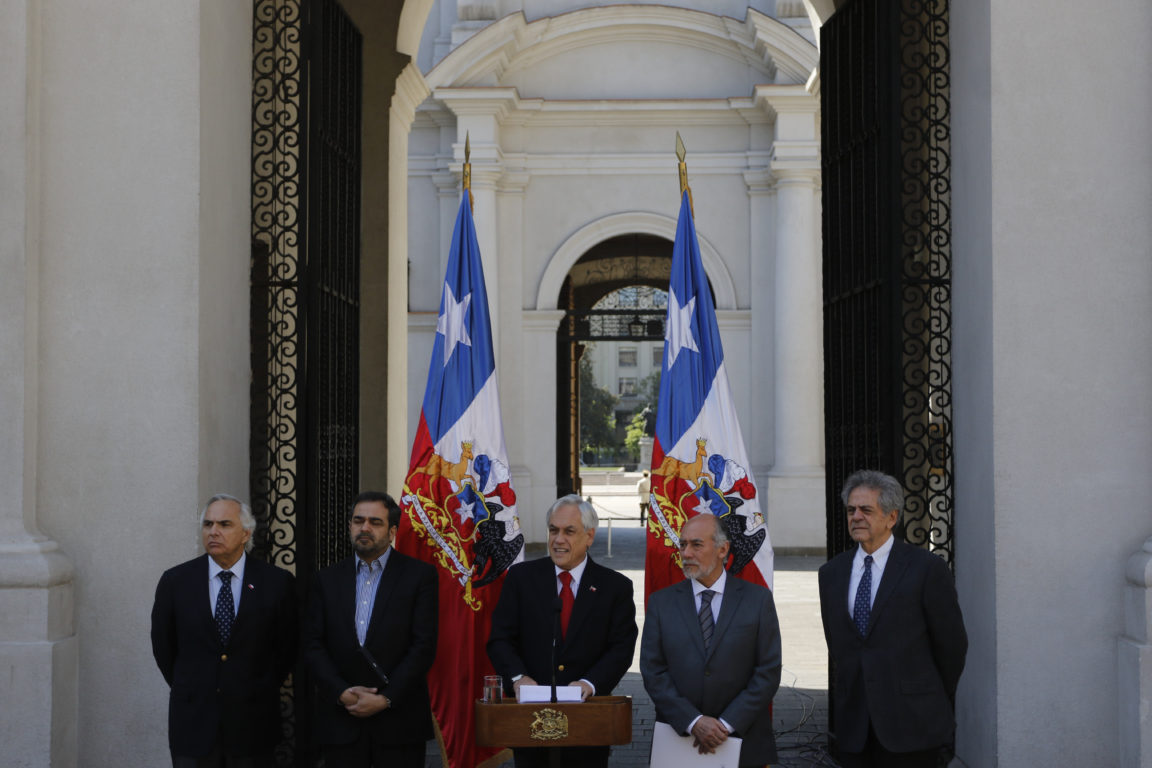Seven people have died amid the riots and protests that have thrown Chile into absolute chaos since Friday, following five days of public unrest after a fare hike in the Santiago Metro.
On Friday night 308 people were arrested, 156 policemen were hurt and 80 Metro were stations damaged.
In this context president Sebastián Piñera declared a State of Emergency in Greater Santiago on Friday night, which he later extended to Concepción and Valparaíso, among others.
So far, the Armed Forces, in charge of security under this mechanism, have imposed curfews in fourteen cities from north to south: Antofagasta, La Serena, Coquimbo, Valparaíso, Greater Santiago, Rancagua, Talca, Chillán, Chillán Viejo, Greater Concepción, Temuco, Padre Las Casas, Valdivia and Punta Arenas.
However, despite military presence in the streets, fires, looting and arson continue. Supermarkets, car dealerships, gas stations, drug stores and warehouses are the main target across the country.
On Saturday night, Piñera announced that he would send a bill to Congress to freeze the fare hike in the Santiago Metro. The Government did not include any regions outside Santiago in its US$4.2 million project.
Even though sessions are never held at the weekend, the House gathered Sunday at 5pm to discuss the Government’s proposal.
The House passed the bill around 8pm and now Senate will gather tomorrow, at 4pm.
La Moneda’s toll did not include the death of an Ecuadorian citizen in La Serena, who was shot dead Sunday evening by troops outside a shopping center.

Chile in shambles
What started as peaceful calls by high school students to not pay the Metro fare in Santiago evolved into a nightmare that the Government never dreamed of.
For months, Piñera has suffered from low approval ratings and high disapproval figures, but his right-wing administration, heavily backed by businessmen and corporate leaders, has managed to soldier on.
Notwithstanding, corruption scandals, low pensions, a national healthcare crisis, a tax reform accused of helping the very rich, multimillion-dollar embezzlement cases in public organisms and even controversies surrounding Piñera himself seem to have taken its toll on the public.
Some have criticised that the head of State evaded property taxes on a lake house in the south of Chile for 30 years, and the fact that he was only given a US$7 thousand fine.
His cabinet also made news in recent weeks with comments that were condemned.
In early October the Finance minister, Felipe Larraín, highlighted a fall in the price of flowers that could interest romantics and the Transport minister, Juan Andrés Fontaine, said that those in Santiago willing to wake up even earlier than usual would enjoy a lower Metro fares.

Santiago paralysed
The transport system in the country’s capital was suspended the entire weekend, but some bus lines are set to operate as of Monday.
Most of the underground operations were cancelled indefinitely, but Line 1 will partially operate as of Monday between stations Pajaritos to Los Domínicos from 7am to 8pm, the Transport secretary said.
From the presidential palace, at 9.20pm, Chadwick stated that in Santiago, this Sunday, over 40 buildings were looted, with over 70 cases of extreme violence registered and 152 arrests.
He also informed that, between the Uniformed Armed Police and the Armed Forces, 10,500 troops have been deployed.
Chadwick described incidents as “loathsome”. Undeniably, they have parted from the demands supported by most of the country. That is why, according to the head of Chile’s security, they deserve “severe punishment”.
“Please, let’s not fool ourselves, we are facing a surge in violence and vandalism that, without a doubt, has been organised to cause serious harm to our country and to the lives of every Chilean”, he said.
After that, he reminded that Piñera met Sunday with the heads of the other branches of the State.
In front of the press, the presidents of the Supreme Court, Haroldo Brito; of the House, Iván Flores; and of the Senate, Jaime Quintana, called for a truce and a national agreement to solve the needs of the public democratically.
It is not clear when the crisis will be solved. What is clear is that the “oasis” Chile was a couple of weeks ago is gone.
On 8 October, asked about the crisis in other countries of the region, such as Ecuador, Piñera said: “in this Latin America, Chile is a true oasis. Stable democracy, growing economy”.
“Look at what happens in Argentina and Paraguay, recession. Mexico and Brazil, stagnated. Bolivia and Perú, political crisis”, he added.
“I ask my fellow Chileans to look after our country. Let’s not fight among ourselves. We have a marvellous nation”, he said.








 Enviando corrección, espere un momento...
Enviando corrección, espere un momento...


